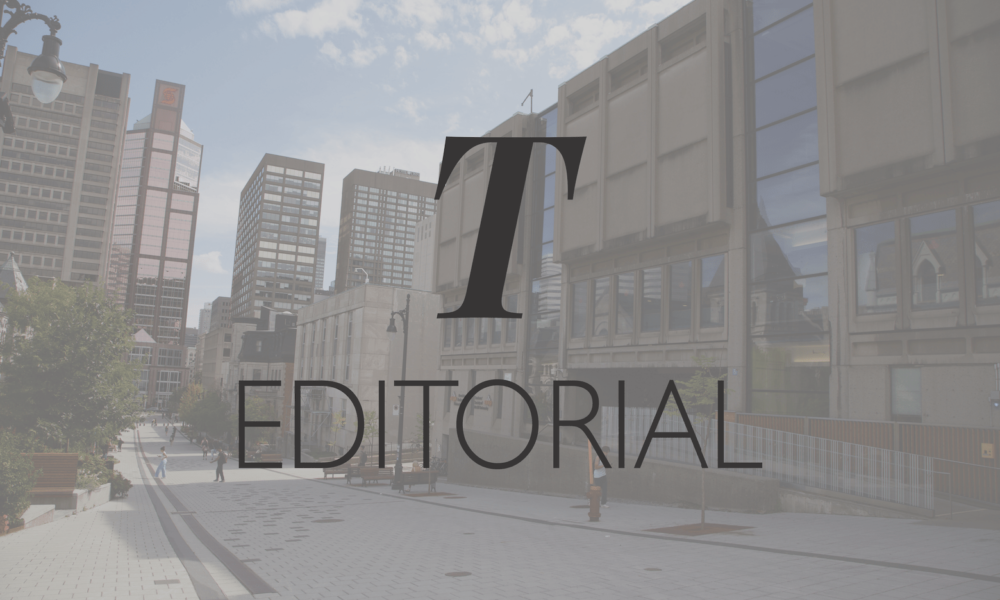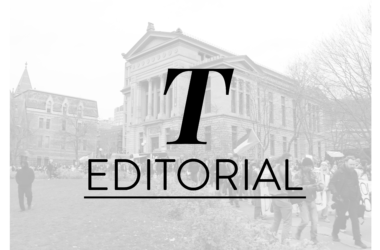On Jan. 10, McGill University’s Centre for Human Rights and Legal Pluralism (CHRLP) planned to host a talk entitled “Sex vs. Gender (Identity) Debate In the United Kingdom and the Divorce of LGB from T.” The debate featured Robert Wintemute, a human rights professor and lawyer with ties to the LGB Alliance—a notorious anti-transgender lobbying group in the U.K.—and purported to discuss whether laws should be amended so that changing one’s legal sex is made easier. In response, student groups such as RadLaw and Queer McGill staged a protest and the event was cancelled only minutes after it began. The event and its disruption spotlighted McGill’s shameless determination to platform a hateful organization that promotes discrimination against trans people, while aiming to sow division within the queer community. The university must apologize for once again prioritizing alleged academic freedom above the rights and safety of the students they claim to serve.
The LGB Alliance claims to advocate for bisexual, lesbian, and gay causes, despite having tweeted that opposing same-sex marriage is not homophobic. The organization is also virulently anti-trans, supporting trans conversion therapy, promoting medical misinformation about trans people, and declaring that gender identity is a “lie.” Organizations like the LGB Alliance relentlessly pit marginalized groups against each other, claiming to be a champion for queer people while simultaneously attacking trans and nonbinary folks. This is a dangerous and divisive tactic often used by those who wish to maintain the status quo of oppression.
McGill claims to be promoting academic debate by hosting Wintemute while also stating that individual events are not endorsements of specific views. In an email to law students following the event’s cancellation, Professor Robert Leckey, Dean of the Faculty of Law, suggested that protesters failed to live up to their commitment to “the exchange of ideas.” However, as highlighted by the open letter put forth by the protest’s organizers, the university’s rhetoric promotes a dangerous culture of intolerance. Such “conversations” that question trans dignity do not exist in an academic bubble of discourse. The hate group in question has exercised their political agenda by contributing to anti-trans bills and attempting to prevent reforms to the Gender Recognition Act in the U.K. The failure to consider the wider implications of giving a voice to transphobic ideology is indicative of McGill’s failure to foster a safe campus for its trans and non-binary students.
Discourse that focuses on trans peoples’ very right to exist, aside from the egregious encouragement of discrimination and hate, moves the conversation away from the myriad ways that transgender people are disproportionately targeted. Trans people are over four times more likely to experience violent victimization than cisgender people, are significantly medically underserved in Canadian health care institutions, and are victims of hate crimes at skyrocketing levels in the country. In particular, racialized trans and non-binary individuals report more instances of sexual assault, harassment, and fear of police mistreatment.
Hate disguised as academic discourse subjects trans students to additional danger and discrimination. The very basis of the event ignores Canada’s colonial history of implementing Western legal structures seeking to delegitimize Two-Spirit identities in Indigenous communities. Anti-trans rhetoric has far-reaching consequences that disproportionately affect racialized transgender people and their communities: 68 per cent of transgender people of colour report mistreatment at the hands of a health provider, there is a worrying lack of access to gender-affirming care for Black transgender youth, and Black transgender women are incarcerated at 10 times the rate of their cisgender counterparts. Protesters were not only defending the rights of transgender individuals, but they were also upholding the principles of active and democratic citizenship. Opposing bigotry is precisely the responsibility of community members—especially in lieu of their unabashedly unprincipled university.
It is unacceptable for McGill or any other academic institution to provide a platform for a discriminatory agenda under the guise of freedom of speech. McGill’s leaders have a responsibility to ensure a safe, respectful campus for all students, and that includes not debating the validity of students’ existences on a public stage. We must stand in solidarity with trans and nonbinary folks, especially those already at the margins, and work towards creating a community where nobody’s right to dignity and respect is up for debate.






The protest was such a failure. Setting aside the condescending view that people aren’t allowed to use their own brains to reject bad ideas, the protesters successfully “deplatformed” this guy from a closed-door talk with a couple dozen people and got him on the front page of the CBC instead. None of these people care about fighting transphobia effectively, it’s all posturing.